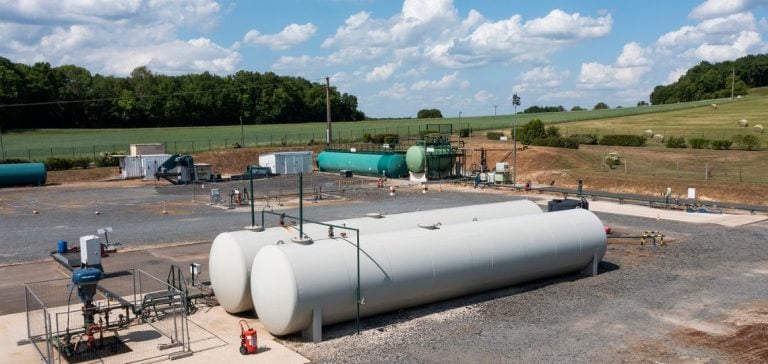Bridge Energies, operator of an oil concession in Seine-et-Marne, plans to open two new wells, authorized by the French government.
This initiative aims to extend the operation of an active site until 2034.
Currently, three wells have already been drilling this deposit since 2012, but the company is justifying the addition of two further infrastructures to support its energy diversification projects.
These new wells, at a depth of 1,500 meters, would enable the company to generate additional revenues earmarked for future initiatives, such as CO2 storage, geothermal energy or other projects linked to the energy transition.
However, these plans are contested by the public water utility Eau de Paris, which manages two drinking water catchments close to the drilling sites, in Villeron and Villemer.
The company fears that these boreholes will compromise the quality of the drinking water serving 180,000 people in the Paris region and Seine-et-Marne.
Eau de Paris took legal action to try to suspend the work, arguing that there was a risk of groundwater pollution.
Despite these objections, an administrative court rejected the emergency appeal, ruling that circumstances did not justify immediate intervention.
However, the legal debate will continue, with a decision on the merits expected in 2025.
Financial and strategic challenges for Bridge Energies
For Bridge Energies, the new wells represent an essential financial lever to support future projects linked to the energy transition.
The company points out that, in the short term, oil production remains an essential source of revenue to finance initiatives such as CO2 storage for industrial companies, or the development of on-site geothermal energy.
The company is thus promoting these new activities as a way of anticipating the post-oil era, while continuing to exploit the deposit.
However, these arguments do not convince the company’s detractors.
Eau de Paris, through its president Dan Lert, criticizes this strategy as a “smokescreen” to divert attention from environmental risks.
Critics argue that the risks to drinking water outweigh the potential economic benefits for the region.
Indeed, although no groundwater pollution linked to oil drilling has been reported in France, past incidents at the Nonville site, where the concession is located, have highlighted the risks associated with these activities.
A debate on the economic benefits of drilling in France
At a time when French oil production represents only 1% of national consumption, the extension of drilling in Seine-et-Marne raises questions about the relevance of maintaining this infrastructure.
National oil production is mainly concentrated in two areas: the Paris basin and the Aquitaine basin, with an uneven distribution of resources.
The Seine-et-Marne boreholes thus make a modest contribution to France’s energy supply.
However, Bridge Energies insists that oil production remains an essential part of the energy transition.
Without the revenue generated by new drilling, the company says it would be impossible to finance its conversion projects.
Bridge Energies president Philippe Pont stresses the importance of maintaining these activities, so as not to hinder the site’s evolution towards more sustainable solutions, such as CO2 storage or geothermal energy.
Opposition driven by environmental and health considerations
Opposition to the Bridge Energies project is based primarily on fears of degradation of drinking water resources.
Eau de Paris argues that the proximity of the drilling sites to its own water catchments increases the risk to water quality.
Bridge Energies retorts that these incidents never led to groundwater contamination.
The debate between the two parties therefore centers on a trade-off between the environmental risks and the economic benefits of new drilling.
While the project’s supporters advocate controlled exploitation to finance the energy transition, its opponents point to the irreversible risks to water resources, which are essential to local populations.
Future prospects for the Seine-et-Marne site
At this stage, the future of the project rests on the forthcoming decisions of the administrative court.
In the meantime, Bridge Energies continues to defend its project, while making it clear that its diversification initiatives, such as CO2 storage and geothermal energy, cannot be carried out without the financial resources derived from oil exploitation.
For opponents, the main issue remains the preservation of drinking water, a vital resource for the population.
The next few months will be decisive for the future of the Seine-et-Marne site.
The tug-of-war between Bridge Energies and Eau de Paris could well become part of a wider debate on the role of the oil industry in France’s energy transition.






















